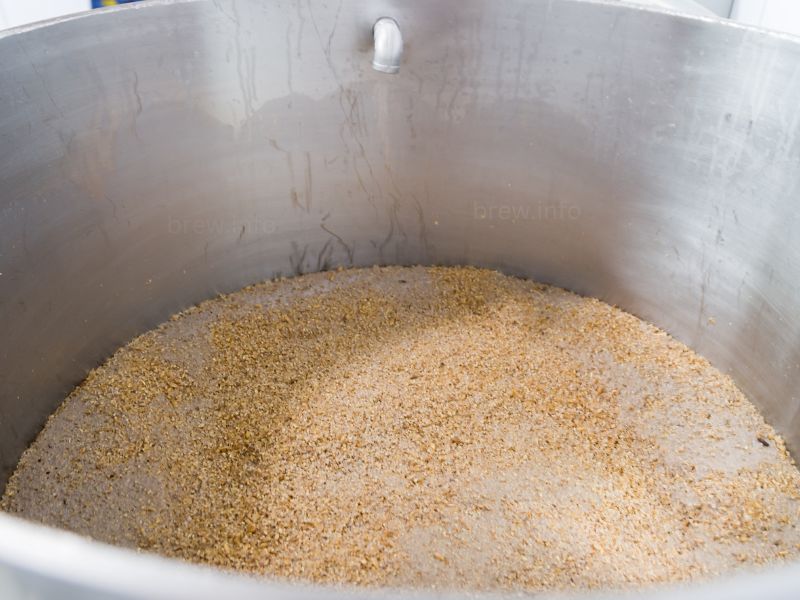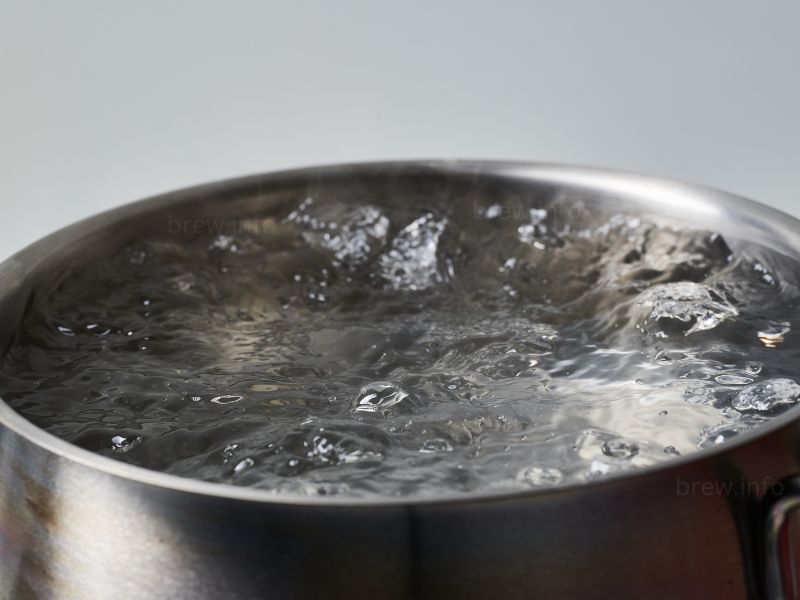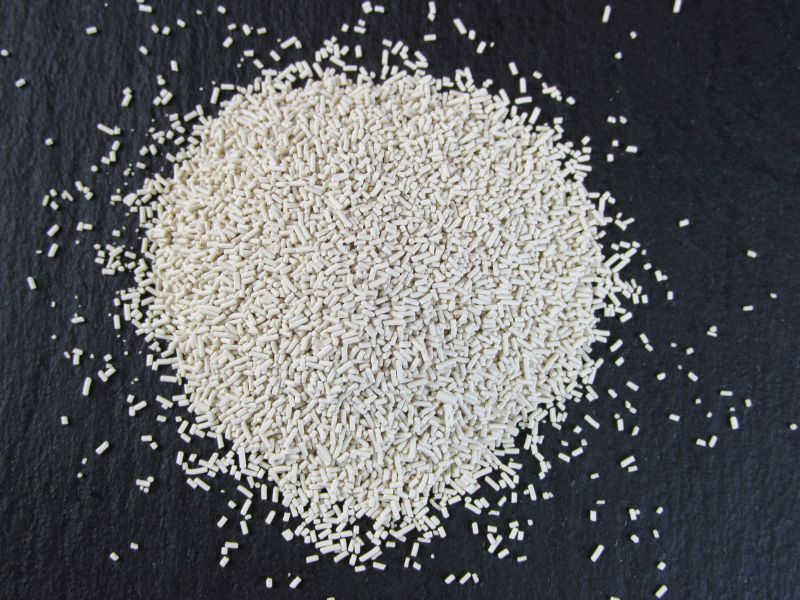As an experienced brewer with a background in microbiology, I can’t emphasize enough the importance of water in the brewing process. It’s often overlooked by homebrewers, but water is the very essence and foundation of beer, making up about 90-95% of its composition. Understanding the role of water in brewing can make a significant difference in the quality and taste of your homemade beer.
To begin, water plays a critical role in the mashing process. This is where grains are mixed with hot water to extract fermentable sugars, proteins, and other essential compounds. The quality of water used in this step has a direct impact on the efficiency of sugar extraction and the overall flavor profile of the wort. Certain minerals in water, such as calcium and magnesium, can enhance enzyme activity, while others, like bicarbonate and sulfate, can influence the pH levels during mashing, which in turn affects the enzymatic reactions.
Speaking of pH levels, water’s pH is crucial to the brewing process. A slightly acidic pH, usually around 5.2 to 5.6, is ideal for mashing, as it aids in the extraction of sugars and other compounds from the grains. Furthermore, the right pH level is essential for proper yeast activity during fermentation, ensuring a healthy, robust fermentation process that produces desirable flavors and aromas. Inadequate pH levels can lead to off-flavors or even stalled fermentation.
As a microbiologist, I have a deep appreciation for the role of water in promoting the growth and activity of yeast, the microscopic organisms responsible for fermenting our wort into beer. Yeast requires a specific set of nutrients and conditions to thrive, and water quality can significantly affect the fermentation process. For instance, water with high levels of chlorine or chloramines can inhibit yeast growth, resulting in off-flavors and a sluggish fermentation.
Apart from the mashing and fermentation processes, water quality is also essential when it comes to cleaning and sanitation. Brewing equipment must be thoroughly cleaned and sanitized to prevent contamination by unwanted microorganisms, which can spoil your beer. Water with high mineral content or impurities can leave residues on equipment, making it harder to achieve a clean, sanitary brewing environment.
Adjusting your water chemistry is an essential step in the brewing process, as it allows you to create the ideal water profile for your beer style. By employing various treatments like carbon filtration, water softening, and adding brewing salts, you can achieve the desired mineral content and pH level for a more consistent and flavorful brew. Here’s a detailed explanation of each method:
- Carbon filtration: Carbon filtration is a popular method for removing impurities, such as chlorine and chloramines, which can negatively affect yeast performance and cause off-flavors in your beer. Activated carbon filters work by adsorbing these compounds, effectively reducing their concentrations in your brewing water. To use this method, simply install an activated carbon filter on your home’s water supply line or purchase a water filter pitcher with an activated carbon filter. Make sure to replace the filter according to the manufacturer’s guidelines to maintain optimal filtration efficiency.
- Water softening: Water softening is a process that removes excess calcium and magnesium ions from hard water. These ions can contribute to scale buildup on your brewing equipment, as well as interfere with enzyme activity during the mashing process. There are a few methods to soften water, including ion exchange, reverse osmosis, and the use of chelating agents.
- Ion exchange water softeners utilize a resin bed to exchange calcium and magnesium ions for sodium or potassium ions. This process reduces water hardness and can improve the efficiency of mashing and brewing.
- Reverse osmosis (RO) systems use a semipermeable membrane to remove ions, including calcium and magnesium, from water. While RO systems are effective at softening water, they can also remove beneficial minerals, so it’s crucial to re-add them using brewing salts.
- Chelating agents, such as sodium hexametaphosphate, can be added to your brewing water to sequester calcium and magnesium ions, effectively softening the water. This method is less common in homebrewing due to its more complicated nature.
- Adding brewing salts: Brewing salts are specific minerals that can be added to your water to adjust its profile and achieve the desired pH level. Some of the most commonly used brewing salts include:
- Gypsum (calcium sulfate): Gypsum can lower the pH of your water and enhance hop bitterness. It is often used in brewing pale ales and IPAs.
- Calcium chloride: Calcium chloride can lower pH and enhance maltiness, making it suitable for brewing darker, malt-forward beers like stouts and porters.
- Epsom salt (magnesium sulfate): Epsom salt can help accentuate hop bitterness and adjust the magnesium levels in your water, which can be beneficial for yeast health.
- Baking soda (sodium bicarbonate): Baking soda raises the pH of your water and can be used to brew darker beers that require higher pH levels.

Brewing Salts Table
| Brewing Salt | Effect | Suitable for |
|---|---|---|
| Gypsum (calcium sulfate) | Lowers pH, enhances hop bitterness | Pale ales, IPAs |
| Calcium chloride | Enhances maltiness | Stouts, porters |
| Epsom salt (magnesium sulfate) | Accentuates hop bitterness, adjusts magnesium levels | Various styles |
| Baking soda (sodium bicarbonate) | Raises pH | Darker beers |
To adjust your water chemistry using brewing salts, start by obtaining a water analysis report and calculating the necessary salt additions to achieve your desired water profile. You can find various online resources and calculators to assist you in this process. Once you’ve determined the necessary additions, carefully weigh the salts and dissolve them in your brewing water.
Remember that water chemistry adjustment is an iterative process, and it may take some experimentation to find the perfect balance for your homebrew. By understanding the properties of your local water supply and employing these treatments, you can fine-tune your brewing process to create the perfect beer for your taste buds.
As a homebrewer, it’s essential to understand the water profile of your local water supply, as it can greatly impact the final product. You can obtain this information from your local water utility or test it yourself using a water testing kit. Once you have this information, you can adjust your water chemistry through various treatments, such as carbon filtration, water softening, or adding specific brewing salts, to achieve the desired mineral content and pH level.
In conclusion, water is an indispensable component of the brewing process. It influences everything from mashing efficiency and pH levels to yeast health and fermentation. By understanding and controlling the quality of water used in your homebrewing endeavors, you can create a beer with a more consistent and desirable taste profile. So, never underestimate the power of good water – it’s the lifeblood of exceptional beer.
© 2011-2023 by Brew.info. All rights reserved. No part of this document may be reproduced or transmitted in any form or by any means, electronic, mechanical, photocopying, recording, or otherwise, without prior written permission of Brew.info.







